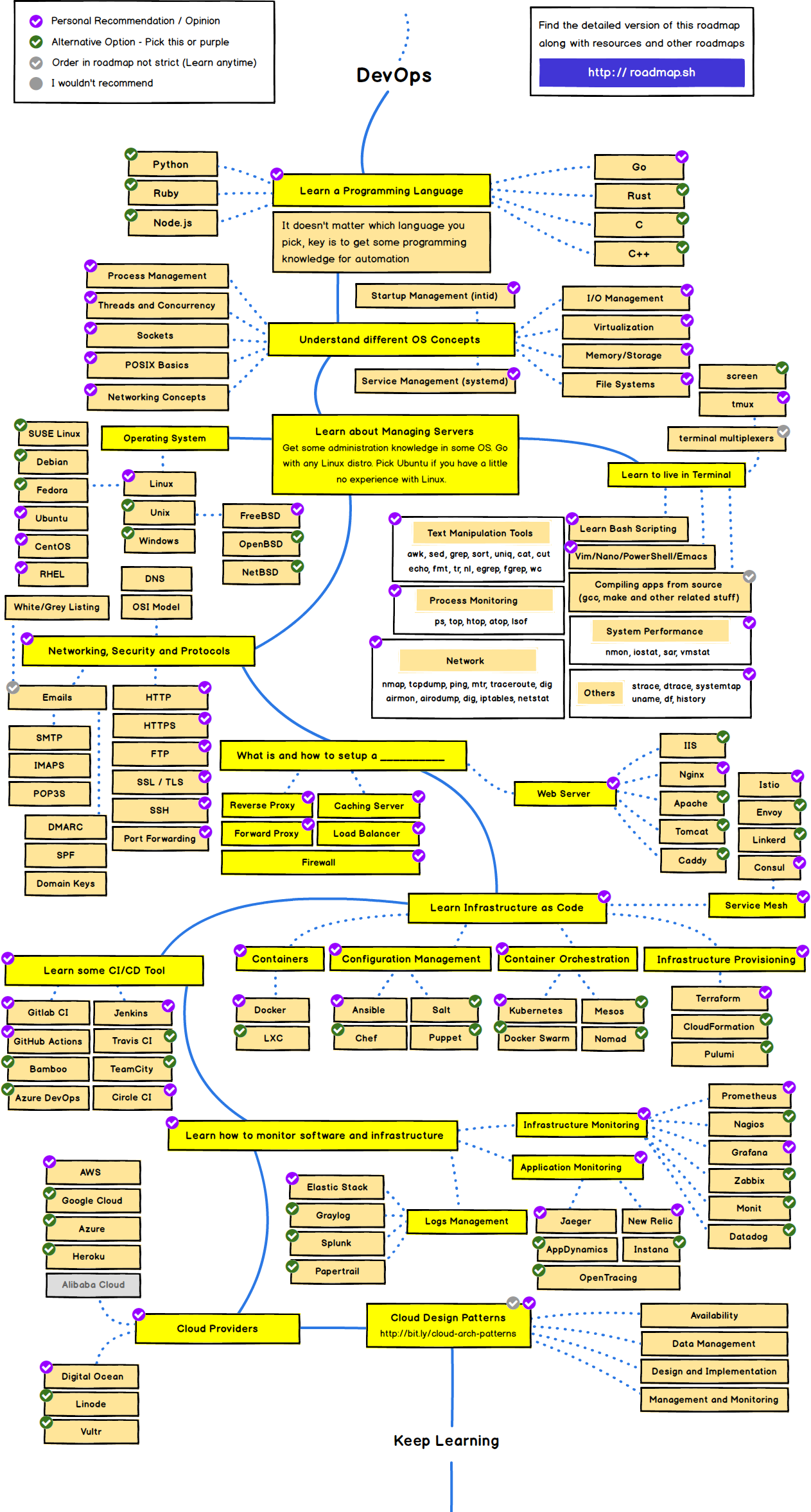Introduction

What is DevOps
DevOps is a cultural and collaborative mindset that emphasizes communication, collaboration, integration, and automation between development and operations teams in order to achieve faster and more reliable software delivery.
DevOps is not a specific job title or role, but rather a set of practices and principles that can be applied across a variety of roles in software development and IT operations. Anyone involved in the software development and delivery process can adopt a DevOps mindset and apply DevOps practices in their work, including developers, testers, operations engineers, product managers, and others.
What is a DevOps Engineer
While DevOps is a mindset and set of practices, organizations need people to implement and manage the tools and technologies that enable DevOps practices. This is where the role of DevOps Engineer comes in. A DevOps Engineer is responsible for developing, deploying, and maintaining the infrastructure and software systems that support the DevOps culture and practices within an organization. This includes tasks such as designing and building automation frameworks, implementing Continuous Integration/Continuous Delivery (CI/CD) pipelines, managing infrastructure as code, and monitoring and logging systems.
Although DevOps is a culture and mindset, having a dedicated role like a DevOps Engineer can help to ensure that the necessary technical aspects of DevOps are being properly addressed within an organization. The role of a DevOps Engineer can be filled by individuals with various backgrounds, such as software developers, system administrators, network engineers, or others, who have the necessary skills and experience to work with the relevant tools and technologies.
How do DevOps & Agile Interrelate
Agile and DevOps both prioritize collaboration, continuous improvement, and delivering working software. They can be used together to create a more efficient software development process. Agile emphasizes iterative development and customer satisfaction, while DevOps emphasizes automating processes and integrating development and operations teams. When used together, Agile and DevOps can improve software development and delivery by streamlining processes and enhancing collaboration.
What are some misconceptions about DevOps
Some common misconceptions about DevOps include:
DevOps is just automation: While automation is an important part of DevOps, it's not the only thing. DevOps is a culture that emphasizes collaboration, communication, and integration between development and operations teams to improve the quality and speed of software delivery.
DevOps is just a job title: DevOps is a mindset and set of practices, not a specific job title. Anyone involved in the software development and delivery process can adopt a DevOps mindset and apply DevOps practices in their work, including developers, testers, operations engineers, and others.
DevOps eliminates the need for IT operations: DevOps does not eliminate the need for IT operations. Instead, it changes the way that operations teams work by promoting collaboration with development teams and introducing new tools and processes for deployment, monitoring, and maintenance.
How to become a DevOps Engineer
To become a DevOps Engineer, you need to have technical skills in areas such as development, automation, containerization, cloud, CI/CD pipelines etc. Some sample tools and technologies to learn may include any programming language, AWS, Ansible, Terraform, Docker, Kubernetes, Jenkins, Git, and monitoring and logging tools. Gain experience by working on DevOps projects, develop a DevOps mindset, get certified, and apply for DevOps Engineer positions by highlighting your skills and experience in your resume.